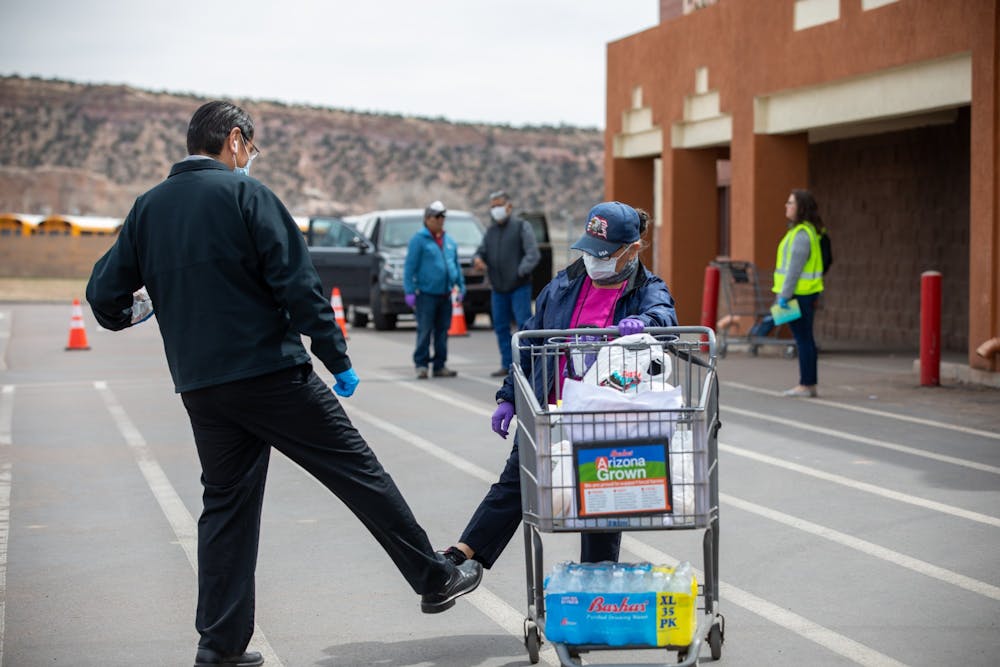The coronavirus pandemic is not the great equalizer some in the limelight have touted it to be.
Melanie Moses, UNM professor of computer science, has been studying the racial disparities of the coronavirus spreading within our state. Moses said there needs to be policies implemented to protect vulnerable groups as individuals plan to open economies, distribute personal protective equipment and develop vaccination plans.
“There are shocking disparities among African, Latinx and Native-American populations with mortality rates at rates at least two or three times higher than white populations,” Moses said.
At least 31% of New Mexicans who’ve contracted COVID-19 are Native American despite only making up about 11% of the population, according to an article New Mexico In Depth published based on publicly available data.
The Navajo Times reported the Navajo Nation joined a lawsuit with 10 other tribes against the U.S. Department of Treasury over inadequate COVID-19 funding. As of the publication of this article, the Navajo Nation had 1,873 positive COVID-19 cases.
Moses said although the coronavirus is something new to all of New Mexicans, the problem of racial disparities in relation to disease has deep, historical roots extending back to slavery and the decimation of Native populations through violence and disease brought by colonization.
Moses explained that it is this history, coupled with systemic barriers in health care access, that lead to disproportionate impact within marginalized communities.
“In this immediate crisis, Black and brown people are more likely to be exposed, and more likely to have underlying health conditions that increase mortality,” Moses said. “They are also less likely to have adequate health care.”
Dr. Jamal Martin, associate vice chancellor of African American Health and Africana Studies professor, said racialized bias plays a tremendous role in race-based disparities and inequities. Martin said that equity can help flatten the curve of the number of people being infected with COVID-19.
Martin said there is overwhelming evidence to support the idea that African Americans and other people of color all face unequal and inferior treatment across social institutions in the United States.
“More praxis is needed about antiracism research and interventions for undoing increases in structural violence and increases in excess morbidity and mortality,” Martin said. “Unfortunately, researchers have yet to fully accept the findings about whiteness ideology and its illogical place in the scholarship of teaching and learning (pedagogy) within academic and clinical health sciences professional education.”
Moses said the models that drove early social distancing strategies assumed what is called a "well-mixed" population, where any individual is equally likely to get sick, spread the disease to others and die from the disease.
Get content from The Daily Lobo delivered to your inbox
However, Moses said that Americans are not well mixed and that the most vulnerable people to be exposed to the virus are far more likely to acquire and die from the virus.
“Protecting the most vulnerable is essential to protecting us all,” Moses said.
Moses said modelers know population assumptions are oversimplifications, and that the next step is to account for systematic disparities.
“Now that we see that initial models underestimate the impact on vulnerable populations, we need epidemic models that account for systematic disparities,” Moses said.
Amanda Britt is the photo editor at the Daily Lobo. She can be contacted at photoeditor@dailylobo.com or on Twitter @AmandaBritt__






